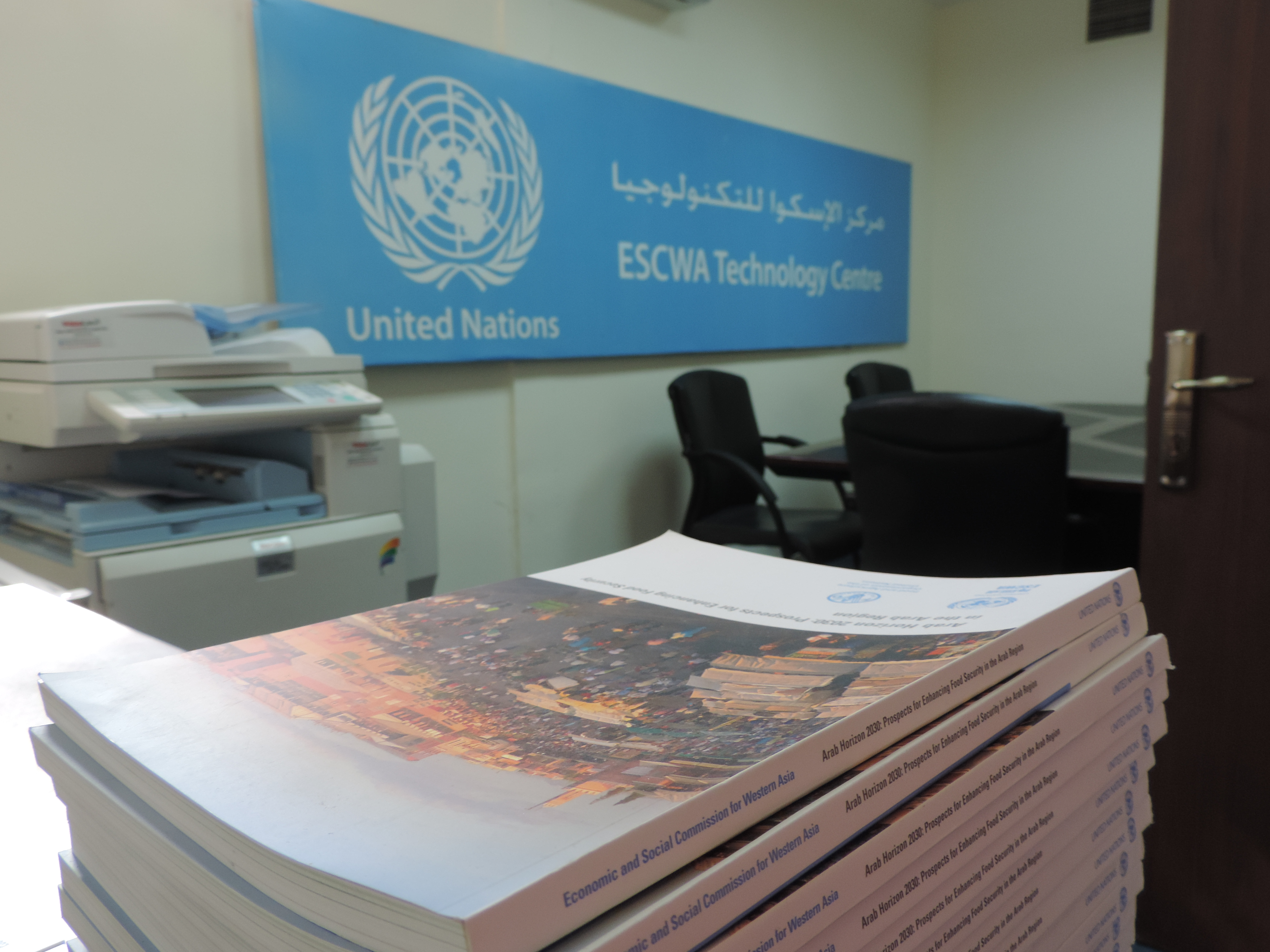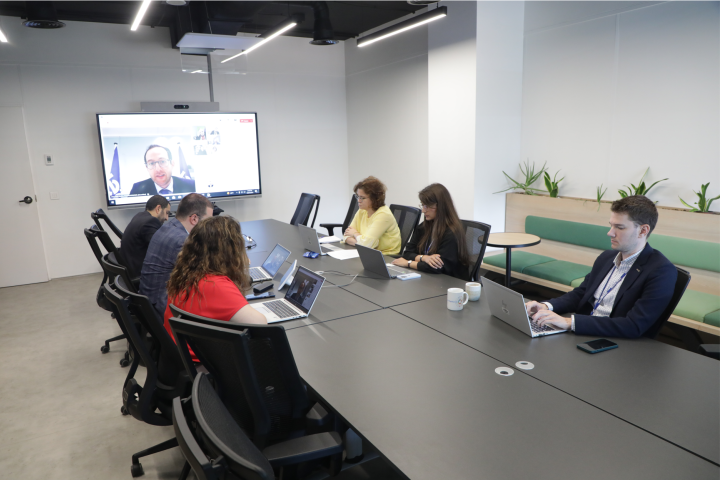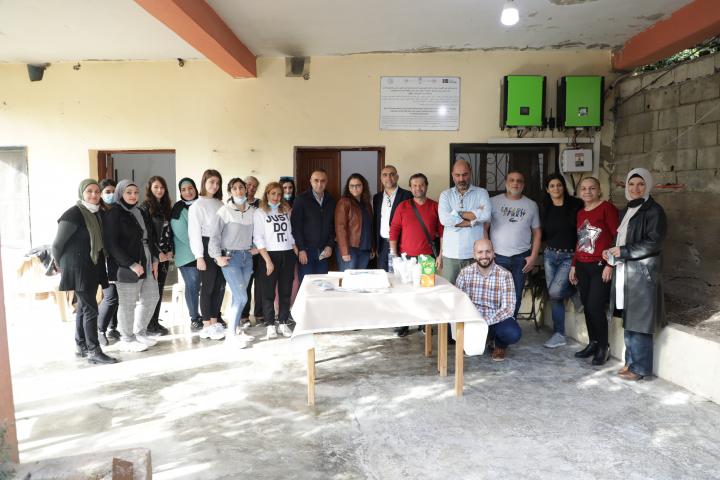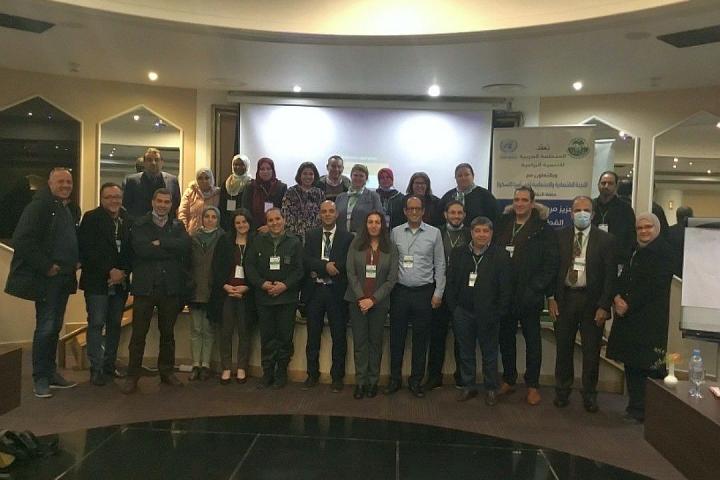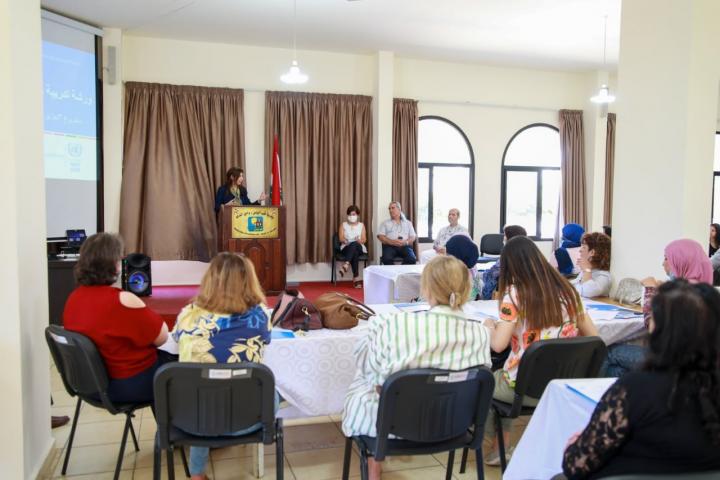Today, the 8th meeting of the ETC Board of Governors (BoG) is convening to discuss the work programme of the centre for 2019 and examine the reports of the discussions raised during the 6th Technical Committee meeting held early October in Amman.
Inspired by the outcome of the 30th Ministerial Session of ESCWA, including the Beirut Consensus, participants from Egypt, Iraq, Jordan, Kuwait, Lebanon, Libya, Mauritania, Morocco, Oman, Palestine, Qatar, Sudan, Syria, and Yemen alongside more than a dozen regional and international experts participating in the 6th Technical Committee, identified priority areas for inclusion in next year’s programme and exchanged views on technology priorities and needs in the Arab region that fall within ETC strategic objectives and areas of intervention.
Services rendered by ETC include research and analysis; advisory services; disseminating information; partnerships with regional and international organizations and key stakeholders; training scientists and policy analysts; as well as assessing and measuring key performance indicators.
Technology for sustainable development
According to ETC Executive Director Reem Nejdawi, advancing technology and innovation in the Arab region can highly contribute to sustainable development specifically in relation to ending poverty, food security, education, water, energy, economic growth, infrastructure and industrialization, sustainable consumption and production, in addition to revitalizing global partnerships and the cross-cutting goal of achieving gender equality.
“The many interlinkages across the Sustainable Development Goals are very complex and can be difficult to understand and quantify,” said Cameron Allen, an Australian independent consultant and expert on the implementation of the global goals, adopted unanimously by all countries in 2015. He was one of the speakers at the recent Technical Committee meeting.
“That is why I believe that advanced integrated assessment tools and different types of models can assist decision makers in understanding that complexity and quantifying the impacts associated with it,” he explained. “ETC could assist countries to use these diagnostic tools to help support identification of key priorities for each of them and assess where technological change can actually help deliver improvement in those priority areas.”
Youth and private sector
Throughout the two-day meeting, youth empowerment as a key to technological advancements was at the core of discussions.
“Youth are the hope of the future,” said Rahma Ibrahim Al-Mahrooqi, Deputy Vice Chancellor for Postgraduate Studies and Research at the Sultan Qaboos University (SBQ) of Oman, and Chairperson of the 6th ETC Technical Committee Meeting.
“We need to provide them with resources, facilities, mentors, and expose them to what is happening,” she stressed. “Education doesn’t have to take place in a room, it can be in the community or in factories as long as we provide hands-on training and experimental learning with a focus on their talents.”
Indeed, all participants agreed that technology and youth go hand in hand and should not be disassociated. Laith Kassis, Chief Executive Officer of the Palestine Techno Park (PTP) in Ramallah, presented on the nonprofit organization which empowers Palestinian youth inside their homeland and abroad by conducting learning activities such as boot camps, crash courses, hackathons and intensive training sessions. The NGO also helps create engagement opportunities with the private sector and guides youth through the completion of prototypes.
“We aim to activate innovation labs on new and emerging technologies, including block chains, augmented virtual reality, the internet of things, robotics, artificial intelligence and others, many of which are used in water, energy and agriculture, helping to improve performance and productivity,” he said.
“We believe that ETC can partner with us in these labs and could offer an added value in terms of its network of experts on new technologies, or by facilitating funding so that we can proceed with certain climate technology projects,” Mr. Kassis added.
Echoing a similar message was Serene Duwayri, the Incubation Director of iPark in Jordan which operates under the Royal Scientific Society and specializes in enabling and accelerating the growth of startup companies. She underlined that information and communication technologies—or ICTs—currently receive more investments than other sectors such as manufacturing, agriculture, climate change technologies, biotechnologies and nanotechnologies.
“We need to get youth interested in these other technologies,” she said. “We also need to get venture capital or angel investment interested in these fields, and we need the private sector to drive it by sharing what challenges they face and how entrepreneurs and small startups can address these and find solutions.”
Rajiv Garg, Regional Manager for the Climate Technology Centre and Network (CTCN) in East and Southern Africa & West and Central Asia also offered his perspective on how to stimulate progress, especially through a demand driven approach.
“One important role for the ETC is to engage the private sector to determine what they need before starting research,” he explained. “This information can then be taken to institutions, so they know exactly what stakeholders are looking for.”
He said that the ETC is also playing a crucial role by building the capacities of policymakers through knowledge exchange and peer to peer learning, and by promoting the benefits of establishing common frameworks.
“The regional approach does not have to mean harmonization and that there’s only one policy. Each country can have their national regulations, laws and specificities depending on conditions and priority areas […] but a common framework can help create a bigger and more attractive market with more chances of success thanks to private sector engagement,” Mr. Garg noted.
Key priorities
At the technical committee meeting, several key priorities were identified. One of the participants, Faten El Jabsheh, Acting Division Director of the Kuwait Institute for Scientific Research (KISR), spoke about how ETC can support academic and research centres in their quest to build strategies for sciences, technology and innovation.
“We have a lot of concerns regarding water and energy, just like all the countries in the ESCWA region, and I think that ETC can have a very pivotal role in our upcoming strategy because we’re looking forward to developing a roadmap for emerging technologies,” she said.
Meanwhile, Khaldoun Khashman, Secretary General of the Arab Countries Water Utilities Association (ACWUA) in Jordan, highlighted the role of technology during crises. “The purpose of technology is not exclusively to improve performance and enhance institutions, but it can also be useful in times of hardship. In fact, there is a great need for technology during crises which undermine services rendered by national institutions,” he said.
“We must take into account how to leverage technology to find alternative solutions. For example, during power cuts, with the lack of fuel or power generators like in Yemen for example, something should be done to provide the minimal service to citizens; similarly, action must be taken to monitor water quality,” Mr. Khashman underscored, adding that he hopes ETC will compile guidelines on how to support institutions using simple technologies in times of crisis.
For his part, Osama A. Rayis, Director-General of Africa City of Technology (ACT) in Sudan, said that his country is currently drafting a policy review around the fourth industrial revolution. Recalling the longstanding pioneering role of Sudan in the region in terms of industrial advancement, he shared that his country still has a long way to go to reach its technological ambitions.
“It was quite a fruitful meeting, providing very good exposure towards what others are doing,” he said. “ It was a chance to network, and explore collaborative work in the context of Arab region, where we face many similar challenges in energy, water, rural areas, conflict areas. We are also looking for a common future on frontier technologies.”.
Once the programme of work is adopted by the Board of Governors, the ETC will continue pursuing its important mandate to ensure that technology and innovation can be key enablers to reach the 2030 Agenda and provide creative solutions to achieve people-centred, sustainable and inclusive development.
For pictures, click here
*****
For more information:Nabil Abu-Dargham, Head, ESCWA Communication and Information Unit
+961-70-993-144; email: dargham@un.org
Ms Rania Harb +961-70-008-879; email: harb1@un.org
Ms Mirna Mahfouz: +961-70-872-372; email: mahfouz@un.org
